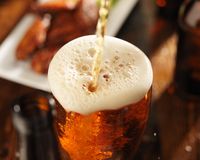
Incontinence is a medical condition that can interfere with daily life. It’s common for people to avoid talking about it, but they may be exacerbating the problem. To help people manage their incontinence, Medical Center Urology provides insight into a few habits that make the condition worse.
What to Avoid if You’re Incontinent
Excessive Intake of Fluids
Drinking plenty of water is key to staying healthy. For people dealing with incontinence, however, excessive fluid intake can make the condition worse. Instead, consume the recommended amount of water — at least eight 8-ounce glasses per day — and be cognizant of when you consume it. Avoid drinking liquids later in the day to prevent issues overnight.
Chocolate Consumption
Eating chocolate can worsen overactive bladder conditions. This has to do with the amount of caffeine in cocoa, which increases the need for urination.
Drinking Alcohol
 Alcohol can greatly increase urine production. While you don’t have to cut liquor out completely, you should decrease the amount you drink if you experience bladder control issues.
Alcohol can greatly increase urine production. While you don’t have to cut liquor out completely, you should decrease the amount you drink if you experience bladder control issues.
Eating Spicy Foods
Eating spicy foods can cause incontinence to become more prevalent. Urology specialists recommend paying attention to any issues you have after eating spicy foods and eliminating the problematic foods from your diet. They tend to cause the most problems for women with bladder control issues.
Drinking Citrus & Other Fruit Juices
Juices are high in acid content, which irritates the bladder while increasing the urge to urinate. If you’re concerned about the nutritional benefits of fruit juice, consider taking a daily vitamin.
By practicing a few good habits and visiting a urologist, you can keep your condition from hampering your life. The Medical Center Urology assists local patients with a range of issues, from incontinence to kidney stones. Schedule your appointment today with these skilled and compassionate doctors by calling (336) 882-0220. For more information on this esteemed practice, visit the website.
About the Business
Have a question? Ask the experts!
Send your question

